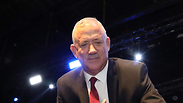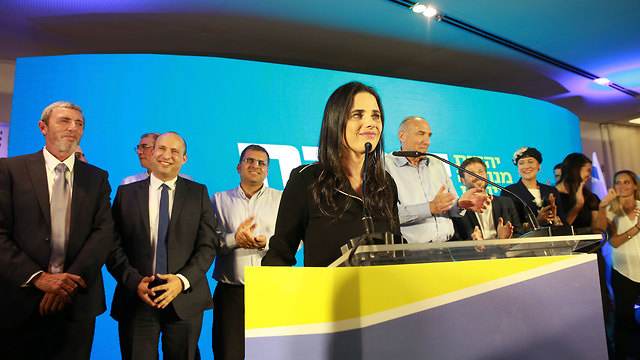
Prime Minister Benjamin Netanyahu's Likud party is the second-largest with 31 seats - down from their 35 seats in the April election.
The Joint List of Arab parties is the third-largest faction in the newly elected Knesset with 13 seats, the best showing for the Arab parties yet.
Yisrael Beytenu, whose pro-unity leader Avigdor Liberman will play a major role in deciding who forms the next government, has 9 seats.
The ultra-Orthodox United Torah Judaism, headed by Deputy Health Minister Yaakov Litzman, also has nine, while its Sephardic counterpart Shas is on 7 seats.
Yamina, a union of factions that hoped to represent voters to the right of Likud as well as religious nationalists, won 8 seats but announced it is splitting back to two separate parties - Jewish Home and New Right.
Labor-Gesher, which was in danger of failing to cross the minimum threshold, received enough votes to get 5 seats, while the Democratic Union has so far received 6 seats.
The extreme-right Otzma Yehudit (Jewish Power) lead by Itamar Ben-Gvir did not pass the threshold.
In a tally of the electorate, Blue and White received 26.1% of the vote and Likud received 25.5%.
The Central Elections Committee said it would begin counting the so-called “double envelopes” at 1 a.m. on Thursday morning.
These ballots include votes from diplomats, security forces, handicapped citizens, hospital patients and staff, and prisoners.
Final results are expected to be announced Thursday.


















